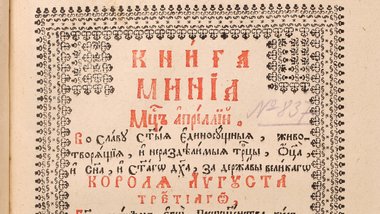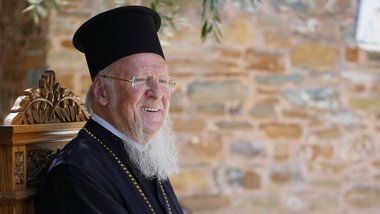Sexual Difference in Paul
The well-known Orthodox theologian Thomas Hopko has suggested in Women and the Priesthood that "the most critical issue of our time [is] the issue of the meaning and purpose of the fact that human nature exists in two consubstantial forms: male and female." Along comes a new book to help us explore this most critical of issues.
 Benjamin Dunning of Fordham University's theology department has written a fascinating and closely argued book: Specters of Paul: Sexual Difference in Early Christian Thought (University of Pennsylvania Press, 2011), x+252pp.
Benjamin Dunning of Fordham University's theology department has written a fascinating and closely argued book: Specters of Paul: Sexual Difference in Early Christian Thought (University of Pennsylvania Press, 2011), x+252pp.
Dunning, the author of Aliens and Sojourners: Self as Other in Early Christianity, here looks at how St. Paul's famous text in Galatians 3:28 ("There is neither Jew nor Gentile, neither slave nor free, nor is there male and female, for you are all one in Christ Jesus") has been interpreted, both within Paul's own day, and down the centuries since then. At every step, Dunning argues, such interpretive efforts have never been final or definitive, never able to resolve all the problems and tensions of sexual difference. There is, he says, a "constitutive instability at the heart of Paul's project that resists any final resolution" (2).
In addition to considering other Pauline texts that bear on this one (including I Cor. 12:13 and I Cor. 14), Dunning also looks at such important Eastern Christian figures as Clement of Alexandria (ch. 2) and Irenaeus of Lyons (ch. 4).
Dunning's stated goal in the book is to "explore the ghosts engendered by the tensions and aporias in Paul's reflections on what it means to be an embodied human being" (3). Such tensions existed already in Paul's day, and have led some recent scholars such as Daniel Boyarin to claim that "'On the issue of gender...Paul seems to have produced a discourse which is so contradictory as to be almost incoherent'" (6). Part of Dunning's task will be to see if Paul is indeed so incoherent and if so how that incoherence has become part of the Pauline legacy handed down to be grappled with by different succeeding generations. Dunning treats Paul, and other patristic, scriptural, and deuterocanonical sources, with the same balanced engagement that he brings to modern psychoanalytic and feminist authors. His tone throughout is consistently respectful but engaging. Most commendably, he is able to describe well what others have said without imposing his own agenda on them. This is a finely crafted work of scholarship.
Before getting into his arguments, Dunning takes time to deal with some crucial terminological issues, echoing the work of such well-known writers as Judith Butler who attempt to distinguish between "sex" and "gender." Dunning will use "sexual difference" most often as a term that "slides fluidly between sexually marked bodies, their psychic representations, and their constitution in historically variable cultural imaginaries" (15). He notes that this term "sexual difference" remains fraught with ambiguity and difficulty, not all of it problematic. Indeed the term's fluidity manifests what Dunning, quoting Butler
, recognizes as "'the permanent difficulty of determining where the biological, the psychic, the discursive, the social begin and end'" (16).
From here, Dunning's first chapter looks at the "disappearance" of the female into the male in some early Christian discourse: sexual difference here was merely one of gradations along a scale of "masculinity."
Chapter 2 takes us into more familiar "eschatological" territory by looking at the thought of Clement of Alexandria. Clement, believing that sexual difference antedates the fall, clearly holds that "the difference between male and female is a temporary element of human existence to be shed at the eschaton" (51)--an idea in Clement other scholars, including John Behr, have noted. And yet this idea sits uneasily, Dunning demonstrates, with Clement's other notions, similar to those discussed in chapter 1, of the centrality of the masculine. Dunning puts the question thus: "How can Clement maintain an autonomous masculine in an eschatological economy in which desire has been eradicated? The solution he offers to this dilemma is the eradication of sexual difference in all its aspects (female and male) at the resurrection" (55).
Clement, perhaps surprisingly, is able to envisage a fundamental equality between male and female, arguing in the Paedagogus that "'the same virtue (ten auten areten) is characteristic of both man and woman'" (68). In the end, Dunning concludes, Clement does not resolve what Dunning later calls "the intractable problem... of assigning a stable and theologically coherent significance to the sexually differentiated body" (153).
Skipping over chapter 3, which, in my judgment fits unclearly and uneasily with the rest of his argument, we come to chapter four and another important Eastern figure to tackle this problem. Irenaeus of Lyons, takes, Dunning shows, a very different approach. Irenaeus's eschatological vision is the opposite of Clement: "At the resurrection sexual difference will not fall away....Indeed there is something unthinkable for Irenaeus about an eschaton that elides or erases sexual difference" (106).
In the end, Dunning concludes this fascinating and closely argued book (only some of which I have described above) by arguing that "a necessary instability in the very categories that constitute theological anthropology" is not a bad thing. Indeed, he puts it more strongly than that: "these cracks need not be construed as an ethical failure....Precisely the failure to produce a definitive story for sexually differentiated theological anthropology has the potential to force open the space for other kinds of stories" (155). He ends Specters of Paul: Sexual Difference in Early Christian Thought by citing the familiar words of Luce Irigaray : "'Sexual difference is probably the issue in our time that could be our 'salvation' is we thought it through'" (156). Dunning is to be congratulated for his cogent and compelling contribution to just that very thinking through, a contribution that, rightly, does not answer all the questions, but knows which questions to raise and helps us see how earlier generations of Christians dealt with them.
Dr. Adam DeVille









